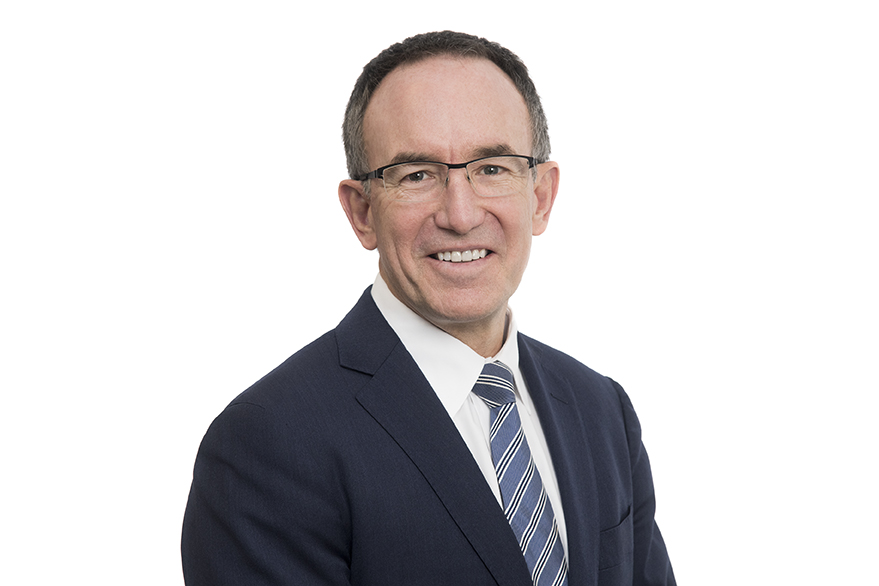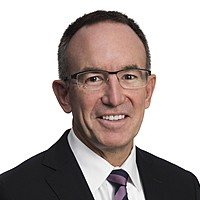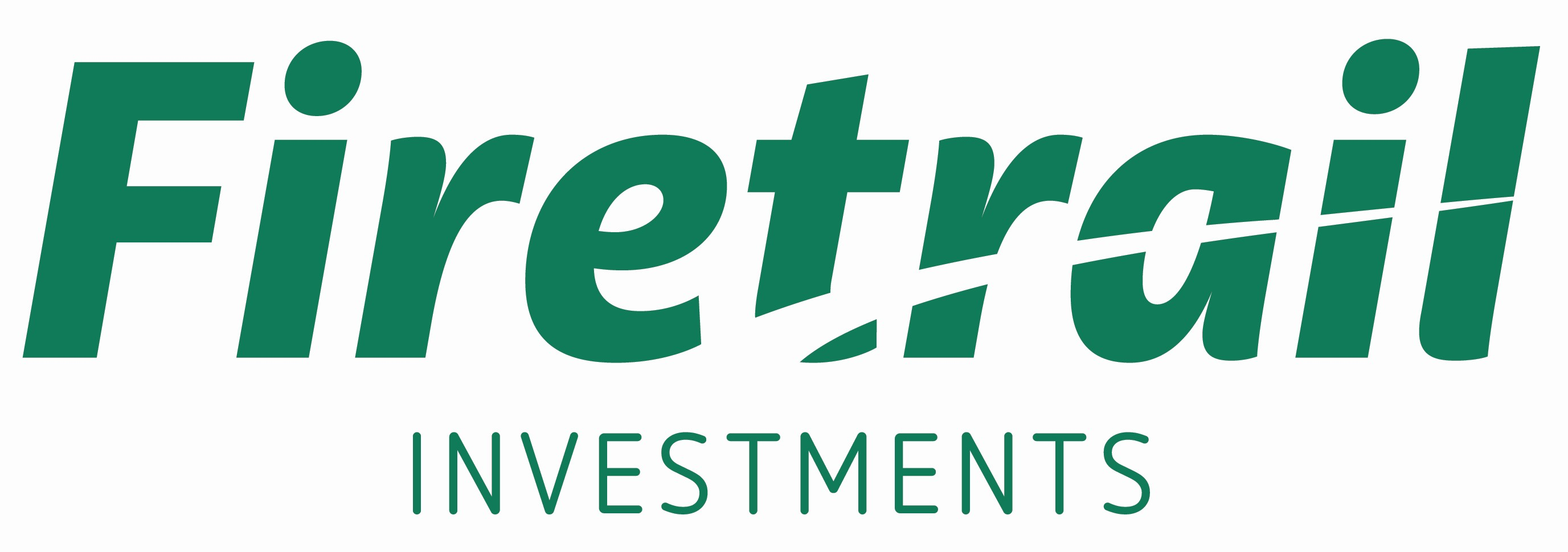Any company can be a good (or bad) investment

Livewire Markets
It all depends on the price you pay. That’s the philosophy of Patrick Hodgens and the team from Firetrail Investments. It’s easy to get sucked in by high revenue growth, or a gorgeous beachside mansion, but if you overpay for those assets, by definition, your returns will be poor.
“That’s been a consistent belief of mine and has stayed true through various market cycles over multiple decades. It shaped my investment decision making and philosophy at Macquarie, where I spent 28 years of my career, and it has shaped our philosophy at Firetrail.”
The advantage of this approach offers the chance to outperform in all markets. Whether value, growth, or quality is the flavour of the week, a valuation manager can be flexible, finding undervalued opportunities at any point in the cycle.
In this Q&A, Patrick explains the Firetrail philosophy, some of the key issues in markets they’re considering today, and he shares one well known Australian company that’s set to change its business – and re-rate in the process.

Portfolio Manager of the Firetrail Absolute Return Fund
- The fund aims to be 'market neutral', which means that long-exposure is netted off by short selling to reduce correlation with the broad market.
- In months when the Australian market is down, the fund has produced a positive return 65% of the time, returning an average of 1.1% in these months.
- Since inception, the fund has returned an average of 9.4% p.a. after fees.
What motivates you as an individual?
I’m passionate about people. What motivates me is helping people to reach their full potential. When you join our team – you have a clear path for growth and career development. I’ve always enjoyed the mentoring role.
Can you tell me about your background and how you’ve shaped your investment philosophy?
Everything has a value. That's been a constant belief of mine and has stayed true through various market cycles over multiple decades. It shaped my investment decision making and philosophy at Macquarie, where I spent 28 years of my career, and it has shaped our philosophy at Firetrail.
At Firetrail we are valuation managers. We believe that every company has a price. And that any company can be a potential investment opportunity. That philosophy is not to be confused with a value manager. We believe constraining yourself to just one style (value, growth, quality) limits your opportunity set and can result in periods of significant underperformance when your style is out of favour.
A good valuation manager should be able to find undervalued opportunities in growth and value markets. It’s a flexible approach. Which can help you to successfully navigate different market styles through time.
What's the investment topic or theme that you and the team are spending the most time debating right now?
We're going through a massive economic boom right now. The cost of everything is going up, and conditions are much better than pre-COVID. That's having an impact on supply chains, and it's having an impact on cost inputs. The copper price is sitting at decade highs. Job ads are sitting at all-time highs. Mortgage applications in Australia, the UK, and the US are all sitting at decade highs. So, increased demand is driving up prices, and that's starting to have an impact on companies.
What we're debating internally right now is how this plays out and whether or not price rises get passed through to the underlying consumer. ‘Inflation’ is the big scary term in markets at the moment. From a bottom-up perspective, we believe inflation is coming and it will be passed on to consumers. You look at companies reporting in the US at the moment, they're all talking about inflation, and they're planning to pass it through.
Inflation is coming, and the key debate we're having is how to position for it.
Why is this important and how is it impacting the way you invest?
It's important because inflation impacts the 10-year bond rate and the risk-free rate that investors use. So, it impacts valuations, particularly for companies with long-term cash flows like bond proxies, infrastructure-style businesses, and growth companies. When you value a growth company, generally you're forecasting cash flows for the next 10 years, then discounting back to today’s value and adding in a terminal value. Often in growth companies, 80% of the valuation comes from the terminal value, which is highly sensitive to the discount rate (and therefore, risk-free rate). So we've seen a rotation out of infrastructure-style companies and growth companies into companies with more cyclical earnings that are exposed to the economy.
That's the risk side of the equation. But this is also creating opportunities in cyclical businesses that over the past three to four years have been undervalued because of the cyclicality of their earnings – they’re considered value-style companies. Because economics conditions are getting better, the outlook for those companies’ earnings is getting a lot more robust. Even though the earnings are cyclical, the earnings outlook is improving.
So we're thinking about how to position the portfolio in an inflationary environment. We want to capture the opportunity, but also manage risk. We're underweight in those ‘bond proxy’ or 'expensive-defensive' companies that have higher sensitivity to movements in interest rates.
Where do you think we are in the market cycle at the moment?
We're going through an economic boom driven by fiscal and monetary stimulus. That's great for anyone owning assets, whether it's your home, equities, or the like. We're still in the optimistic stage in my view.
Despite the optimism, markets have actually been behaving quite rationally, particularly over the last six to nine months. Going back 18 months, a growth company would downgrade on their earnings, but the share price would rally. More recently, companies that have downgraded earnings are seeing it reflected in the share price. One example is Xero, who just reported a few weeks ago.
The other big cycle we're in is the rotation from growth into value. And we’ve also gone through a massive period of recapitalizations. You've seen IPOs coming to market, and we’re starting to see the beginnings of a big M&A cycle.
I don't think we're in the euphoric stage of the cycle, but I think we're in one of those optimistic periods. It's being backed up by economic stimulus, fiscal stimulus and economic conditions.
What's a key investment theme for investors to watch over the coming decade?
One big opportunity we see is identifying companies that are going to benefit from positive change. This is a sustainable approach to investing, but it's not traditional ESG-focused investing, which is just a rules-based backwards-looking exercise in box-ticking. In our view, there are no good or bad companies, only good or bad investments. And big opportunities can be found by identifying companies that are going through a period of change.
Markets are pretty good at extrapolating what's happening right now into the future, but they're not very good at looking out over a multi-year horizon and assessing companies going through change.
Something we've identified as an opportunity is to look at businesses that are going through positive changes. Where the sustainability of their earnings, the sustainability of the underlying business and the quality of the underlying business is going to improve over the medium to long term.
For example, one Australian company that I think has a catalyst for positive change is Lendlease. Lendlease right now, is about engineering and construction, which are difficult businesses that few investors want exposure due to the large contract losses in Australia.
But Lendlease’s business is going through a two-fold transformation.
First, they have a huge development pipeline that’s focused on high-quality tier-one assets globally. They’re working on the Google project in San Francisco, they've got projects in London and New York, they’re working on the Barangaroo project here in Sydney. So they’ve got really high-quality assets coming through their development pipeline - $100 billion worth of development coming through that will fund decades of growth.
Second, the big focus of their business is moving their development projects into their asset management business. We believe that over time as they move away from engineering and construction and focus on converting that development pipeline into the asset management business, the quality and the sustainability of their earnings will re-rate.
A future opportunity for Lendlease is to become leaders in ESG projects such as green buildings. That could be a huge source of growth for their business. These green projects attract capital partners who are looking for sustainable projects. We're already seeing huge demand and premiums for assets that can make a positive environmental impact.
It’s a huge opportunity for a business that is trading at a discount to the market right now. It could potentially re-rate, while also seeing better earnings coming through over the medium to long term.
It’s something we're really excited about. It's a big opportunity. Right now, companies like AGL, for example, could be considered uninvestable by many investors. But they could change their tune over the next five to 10 years and become renewable energy leader. That would be a catalyst for us to start researching AGL and ask ourselves if this could be a potential investment opportunity as they go through change. You've seen offshore companies like Orsted in Denmark do it - it went from 80% fossil fuels and 20% renewables 6 years ago, to 20% fossil fuels and 80% renewables today. That company has re-rated from, nine times price-to-earnings to almost 40 times price-to-earnings. A material valuation premium which reflects the sustainable nature of the business today.
Could you share some practical advice that you believe can help investors to be more successful?
Every company has a price. The biggest input into whether your investment decision is good or bad is the price you pay for the asset. I would compel any investor to focus on valuation when they're making an investment decision and don't overpay for anything. You could be looking at the nicest house, looking over the harbour, but if you pay a billion dollars for that asset, chances are very high that it's going to be a poor investment decision. For me, that is the number one rule of investing.
One investment idea for the long term
One opportunity that's got us excited is SEEK (ASX: SEK), Australia's number one job classifieds business. Today when I mention Seek, investors might be thinking, “they had this great Chinese business, Zhaopin, they've been forced to sell some of that, which was the company's big growth area for. Where will its growth come from?” The answer is here in Australia and it's driven by two key things.
The first is pricing power. We first invested in SEEK back in 2014 when LinkedIn was coming to town. Back then, the key issue was whether LinkedIn would erode SEEK's market share and drive SEEK into the ground. At the time, LinkedIn was spending more in its R&D budget than SEEK was earning in revenue. So, it was a massive competitor coming into the Australian market. We researched SEEK extensively, talking to some of the largest recruitment firms in Australia and the key insight was that if you're looking for active job seekers in the Australian market, there is no replacement for SEEK. The company places five times more jobs than its nearest competitor, which is LinkedIn, still today in the Australian market. While some people like you and I will use LinkedIn, and it's a great passive job platform, that's exactly what it is, it's filled with passive candidates, not active job seekers.
With that in mind, the amount that SEEK charges for its service is very low. An average recruiter is only paying SEEK $64 for placing an ad today. A very small amount compared to the value that SEEK is adding. It is a small part of the pie.
If you're looking to place a job with a recruiter today, on average, you pay 10 to 15% to the recruiter. So for a job with a $100,000 salary they're taking between 10 to $15,000 for placing that job. I guarantee the first thing they're doing is placing that job ad on SEEK, and SEEK's only charging them $64. So, there's this huge gap between the cost of placing an ad on SEEK and the value that they're adding for recruiters, and SEEK's looking to close that gap.
In the last 18 months, they've been going through a price readjustment for some of their largest recruitment customers, banks, et cetera. They’re increasing the cost of an ad from $64 to over $200 over the next three to five years. This will eventually bring it more in line with a standard job ad on SEEK for an SME, which is around $320.
If they can repeat this across their clients, which they have been over the last 18 months, that will result in material earnings upgrades for SEEK here in the Australian business. That's a compelling opportunity, they're highly leveraged to that growth.
At the same time, we're going through an economic boom. In fact, job ads are at decade highs. And far above FY19 levels. Even though job ads are going through the roof, job placements are low. So, competition to place 'noticeable' ads has accelerated, which is allowing SEEK to not only increase their pricing across their platform but introduce new product features like dynamic product pricing and premium ads. That strategy has been successfully rolled out across RealEstate.com.au and Domain in the past. SEEK's going through that same journey right now, at a time where demand to place ads is very high.
They’ve got significant pricing power and earnings growth that we believe will exceed market expectations over the medium term.
They’ve got a cyclical tailwind coming from activity in the jobs market at a time where competition to place candidates is tough.
And it’s trading on a pretty undemanding multiple. Optically, it may look overvalued, but once you strip out some of the loss-making businesses it's trading on a price-to-earnings ratio of about 26 or 28 times.
For us, it ticks all of those boxes for a high conviction position in our portfolio that we're excited about for the medium to long-term.

Australia's 100 top-rated funds
Livewire's Top-Rated Fund Series gives subscribers exclusive access to data and insights that will help them make more informed decisions.
Click here to view the dedicated website, which includes:
- The full list of Australia’s 100 top-rated funds.
- Detailed fund profile pages, with data powered by Morningstar.
- Exclusive interviews with expert researchers from Lonsec, Morningstar and Zenith.
- Videos and articles featuring 16 top-rated fund managers.

3 stocks mentioned
1 fund mentioned
2 contributors mentioned

Patrick was one of Livewire’s first employees, joining in 2015 after nearly a decade working in insurance, superannuation, and retail banking. He is passionate about investing, with a particular interest in Australian small-caps.
Expertise
No areas of expertise

Patrick was one of Livewire’s first employees, joining in 2015 after nearly a decade working in insurance, superannuation, and retail banking. He is passionate about investing, with a particular interest in Australian small-caps.
Expertise
No areas of expertise
